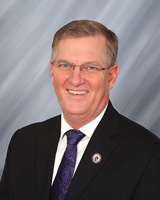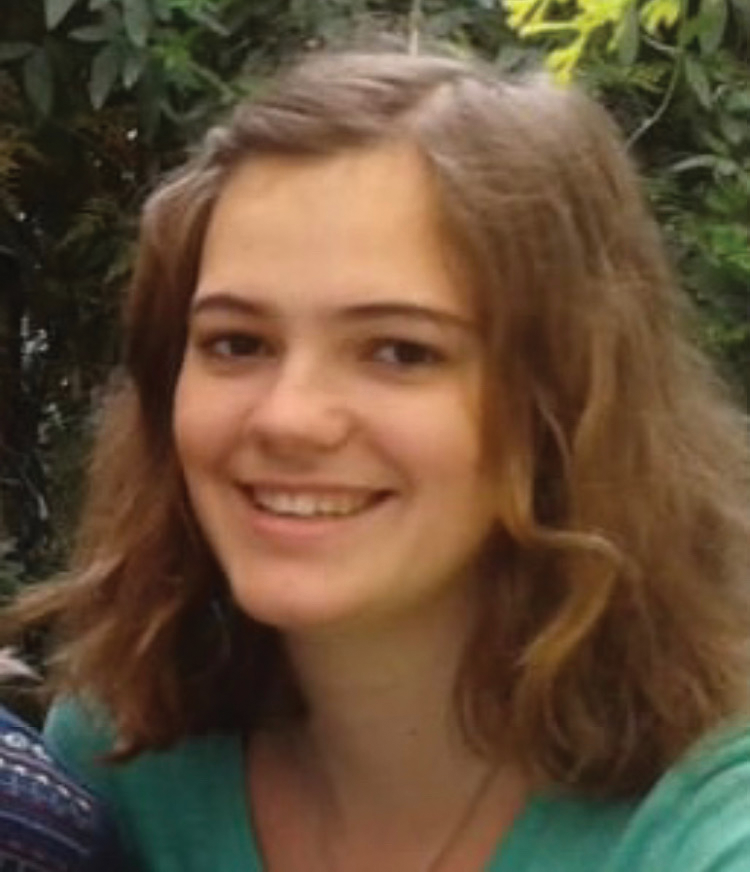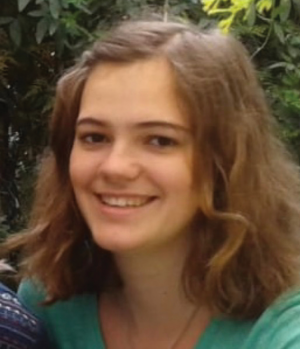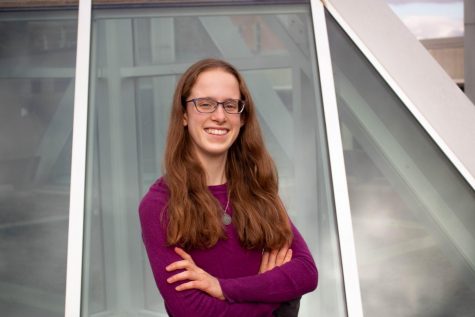Students for Life: Nook overturns NISG Court’s decision
Oct 29, 2020
The verdict is in: UNI Students for Life is officially a registered student organization at the University of Northern Iowa.
In a campus-wide email and university press release on Monday, Oct. 26, UNI President Mark Nook overturned the Northern Iowa Student Government (NISG) decision to deny the group that status, ending nearly three weeks of discussion and debate.
The controversy surrounding the organization, an affiliate of the national pro-life group Students for Life, began at the Oct. 7 NISG Senate meeting. At that time, the Senate voted to deny UNI Students for Life the right to form a student organization, citing their potential to create a hostile environment on campus due to the “hateful rhetoric” of the national organization.
Following the Senate’s decision, the group appealed first to the NISG Supreme Court, who subsequently upheld the Senate’s decision in a 5-3 ruling on Oct. 14, and then to President Nook on Oct. 20. Nook overturned the Court’s ruling on Oct. 26, writing that NISG had denied UNI Students for Life “based on the content of the student organization’s viewpoint, speech and assumed potential activities.”
“Neither the University nor NISG endorse any student organization’s viewpoints by approving them as student organizations. By denying them recognition when they intend, in good faith, to engage in lawful activities, we deny them their right to free speech and assembly guaranteed to them by the First Amendment,” he added, in an eight-page document included with the press release.
The active stance that Nook has taken in the decisions of NISG in this case is atypical, he said in a Zoom interview with the Northern Iowan on Tuesday.
“Typically, very few things (from NISG) actually come to my desk that require my review or oversight,” he said. “I tend not to insert myself into the middle of their operations. It’s one of the reasons I don’t attend a lot of their meetings, so they can do their work without the undue influence of the president.”
This was the first time since Nook became university president in February 2017 that an issue relating to the registration of a student organization has come down to his jurisdiction.
In fact, he noted, the process for students to appeal to the president is so infrequently used that it is not clearly defined in university policy.
“There isn’t an appeal process laid out in any of our policies; it just says you can appeal to the president,” he said.
To provide guidance to the students, Nook asked that UNI Students for Life write a letter of appeal, explaining their request and the background of the situation. Staff from UNI Student Life & Event Services, including Associate Director Steffoni Schmidt, helped the group prepare their letter.
Nook also requested related documents from NISG, including transcripts and agendas from the Oct. 7 Senate meeting and the Oct. 14 Supreme Court trial. After reviewing the documents, he felt there was sufficient evidence for him to decide without calling members of NISG and UNI Students for Life to give oral testimony.
“Trying to set up (oral testimonies) would extend the time to a decision, and it also requires people to go through the process again when everybody had to go through this twice already — actually, three times for UNI Students for Life,” he said, noting that the organization had dealt first with the NISG Organization and Finance Committee, then the Senate as a whole and finally the Supreme Court.
“A decision in a timely manner is important in these cases,” he added. “With the record that was there, the materials that were there, there was certainly plenty of material to make the decision on.”
In the eight-page ruling, the president first addressed the majority opinion of the NISG Supreme Court that UNI Students for Life lacked “good faith.” He stated that the way the Court had defined good faith — being an “equitable, just, and welcoming student organization” — was not in accordance with UNI policy and held the group to a standard which had not been applied to other campus groups.
Nook also agreed with the minority opinion of the Court that UNI Students for Life’s right to free speech on campus is protected by the First Amendment. He added that NISG could not deny them based on their “potential” to create a hostile environment, since the university policy cited by NISG applies to actual conduct, not potential conduct.
In addition to NISG documents, Nook also consulted university, state and Board of Regents policies, as well as the First Amendment.
Finally, he drew from the 1972 U.S. Supreme Court case Healy v. James, in which a student at Central Connecticut State College was denied the right to register a student organization affiliated with a national group alleged to be involved in campus protest and violence. The Supreme Court found in favor of the student, citing the First Amendment, and Nook noted that he had applied the same precedent to the current situation.
When the president released his decision, it was a moment of profound relief for UNI Students for Life’s president, sophomore history education major Sophia Schuster, who has been advocating for the group throughout the process.
“I wasn’t really surprised with the outcome at all, for the first time,” she said with a laugh.
The issue has received regional and national attention, with media outlets such as the Waterloo-Cedar Falls Courier, the Cedar Rapids Gazette, the Des Moines Register and even Fox News reporting the issue. Nook, however, said that he ignored the media coverage “as much as possible,” wanting to rely solely on the relevant documents from NISG proceedings as he made his decision.
“I didn’t want to be persuaded by what anyone was writing or saying about that,” he said. “I did largely ignore what was being written and reported so that I could read the materials fairly.”
Schuster also became caught in the national spotlight, but said she found, to her surprise, that nearly all those who were contacting her were offering messages of support rather than hostility.
“I got a lot of emails, text messages, phone calls, and they were all positive, so it was really cool to see how much of the country really loves the pro-life movement,” she said. “It was awesome to see how America and the pro-life movement reacted in such supportive ways.”
The national organization Students for Life of America, which has also been closely tracking the evolving situation on its website, released a blog post applauding Nook’s decision on Monday, Oct. 26.
“Viewpoint discrimination is both unconstitutional and undemocratic, as the free marketplace of idea is designed to allow for citizens to share their views,” said Students for Life of America President Kristan Hawkins in the post.
Now that UNI Students for Life is an officially recognized student organization, Schuster hopes to launch several initiatives before the end of the semester, focusing on recruitment and establishing relationships with local pregnancy centers.
She expressed her gratitude to Nook for his decision.
“At the end of the day, the president, the administration, recognized what had gone wrong, and they set it right,” she said. “We’re a group now, so that’s all I wanted.”
As the campus moves forward, Nook said he hopes that students, staff and faculty have gained what he has from the situation — a deeper appreciation of the “breadth and strength and importance” of the First Amendment.
“If we don’t protect the free speech of everyone, we can’t protect the free speech of anyone,” he said in the interview. “If we’re going to deny the First Amendment rights of one group, it’s only a matter of time until the tables are turned and our First Amendment rights are denied as well.”
Related: Panel discusses First Amendment, free speech on college campuses
Following the events surrounding UNI Students for Life, a virtual panel featuring three UNI professors discussed the issue of First Amendment rights and responsibilities on public university campuses in more detail.
The event, which featured Dr. Ana Kogl (professor of political science), Dr. Cate Palczewski (communications and media) and Dr. Martha Reineke (philosophy and world religions), was held Wednesday, Oct. 28 at 5 p.m. Dr. Susan Hill, head of the Department of Philosophy and World Religions, served as the panel’s moderator.
The participants discussed a variety of issues related to free speech on campuses, from the proper response to hate speech to the First Amendment rights of faculty in the classroom setting.
Although the entire discussion was not explicitly centered on the specific scenario which has played out on the UNI campus over the last three weeks, the panelists drew connections to UNI Students for Life as they made their points.
Palczewski emphasized that the campus conversation sparked by these events is one that must continue.
“The fact that a student group has been approved on campus is not an indication that this debate is done…. It’s not going to get figured out if we don’t try to keep talking about the issue,” she said. “This is a moment where this debate needs to begin and continue, not where it ends.”












Ron Platt '63 • Nov 20, 2020 at 8:30 pm
As an alumni I object to both this kangaroo court process the Prez invoked and suggest this was a purely political decision intended to further entrap a certain portion of the electorate for one party.
See the following letter published in the Storm Lake Times.
In Stray Thoughts (Storm Lake Times, 10/23) Randy Evans questions the decision of the Student Senate of the University of Northern Iowa to deny the application of Students for Life (SFL) to be an official student organization. He advances the First Amendment and right of free speech, especially on a public university campus, and cites other examples of the universities trampling on free speech.
A student court defended the decision explaining, “(that group) has the potential to create a hostile environment on the university campus.” Indeed the pro-life movement has been characterized as a domestic terrorist organization. SFL has asked the UNI President to intercede and overrule a decision by the elected Student Senate.
So inquiring minds might wonder “what is this fight all about?” Are universities trampling on free speech? Should the prospect of violence be a concern? This reader gets a strong whiff of politics.
Restricting abortion is a political tool; used by one party to control a certain portion of the electorate even though recent polls indicate 75% of Americans support Roe versus Wade. Reading the tea leaves it is reasonable to conclude the main goal of SFL is to create anti-abortion citizens, and voters. Does UNI sanction that?
No speech is being denied. Those students may speak all they want, just not as a subsidized, officially sanctioned student group. Will the final decision rest on principle or politics?
Ron Platt '63 • Nov 19, 2020 at 6:05 pm
Am disappointed to see that President Nook has overturned the decision of the Student Senate of the University of Northern Iowa to deny the application of Students for Life (SFL) to be an official student organization. Seems he decided without bothering to talk with any actual student.
A student court defended the decision explaining, “(that group) has the potential to create a hostile environment on the university campus.” Indeed the pro-life movement has been characterized as a domestic terrorist organization. Check Wikipedia for their long record of violence.
So inquiring minds might wonder “what is this fight all about?” Are universities trampling on free speech? Should the prospect of violence be a concern? I get a strong whiff of politics.
Restricting abortion is a political tool; used by one party to control a certain portion of the electorate even though recent polls indicate 75% of Americans support Roe versus Wade. Reading the tea leaves it is reasonable to conclude the main goal of SFL is to create anti-abortion citizens, and voters. Does UNI sanction that?
No speech is being denied. Those students may speak all they want, just not as a subsidized, officially sanctioned student group. Did this decision rest on principle or politics? Did Nook talk, perhaps, with the Governor?